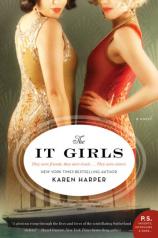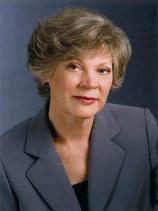Reading Group Guide
Discussion Questions
The It Girls

1. The status and struggles of women were different in the late Victorian and Edwardian eras. How do Lucile and Elinor both triumph but also pay the price for pushing the envelope in their careers?
2. Take another look at the two quotes by the Sutherland sisters at the end of the Author’s Note. Would those statements be true today, or are they dated? What single inspirational statement or piece of advice would you share about a woman’s journey through life today?
3. The acquaintances and friends of the Sutherland sisters are a "who’s who" of two continents. Of the various famous people who figure in the story, who would make a good central character for a novel of his or her own? And have you read a book or seen a movie on one of these secondary characters? I recall a 1978 - 1979 "Masterpiece Theatre" series on Lillie Langtry called "The Jersey Lily." Amazon has the complete series on DVD, and some episodes are archived through PBS’s "Masterpiece Theatre" to be watched online.
4. The concept of "It" as being a charismatic character trait is still around today. It is first mentioned in Chapter 8 of this novel, and most people associate it with Clara Bow. Do you know or have you known someone who emanates “It”? How or why did they stand out to you? And how would you explain that personality phenomenon to someone who hears it for the first time? Do all famous people have some sort of “it” today?
5. Both Elinor and Lord Curzon had derogatory doggerel written about them. Was this the negative, social media attack of that day? What other social pressures are mentioned in the novel? And how does the “press” of that day compare to our media?
6. The novel illustrates that sisters can be a blessing or a curse. Why didn’t the Sutherland sisters get on at times? Have you observed or experienced similar two-edged family dynamics in your own life or that of others? Have you read fiction or nonfiction about other “sister acts”?
7. It has long been noted that women who lose their fathers early may later tend to gravitate to older men. Lucile and Elinor lost their father early; they didn’t really remember him, and he was kept alive and young through their mother’s memories. Have you seen women try to replace a loved and lost parent in their lives?
8. The traditional concept of "romance" (meaning not just a love story) played a part in the lives and careers of both Lucile and Elinor. Did their clinging to their ideal of "romance" (based on chivalry and adventure with the idealized woman on a pedestal) help or hurt them in their careers as designer and novelist?
9. Who are the noted women today who are "leaning in" and breaking barriers through unique careers or endeavors? Do they have it easier or harder than women in the past? (And do they have “It”?)
10. As a reader, what do you think of historical novels that are what Alex Hailey, the author of ROOTS, dubbed "faction" --- that is, a well-researched novel about real people that has fictional scenes and dialogue and some invented characters? Does faction work in a way a straight history book would not?
11. Do you agree with Elinor or Lucile about whether to read the end of a novel first before investing hours in reading it? Have you ever done that, or have you known others who did? What were their reasons?
The It Girls
- Publication Date: October 24, 2017
- Genres: Fiction, Historical Fiction
- Paperback: 384 pages
- Publisher: William Morrow Paperbacks
- ISBN-10: 0062567772
- ISBN-13: 9780062567772







